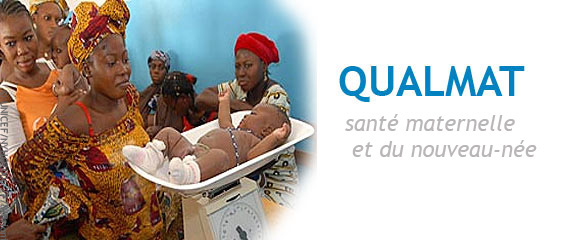
QUALMAT Work Package 5 – important in building capacity
I am writing this article as a follow up to one I wrote last May when I first came into contact with the QUALMAT project.
The reason I am writing this blog to you is to make you aware of something very interesting which the university of Heidelberg has achieved in relation to QUALMAT – Work Package 5 (WP5); more by accident than by design to be honest but which nevertheless is very important and could change the model of practice for future qualitative research projects in Africa. It really is that important. I have been involved as a trainer and consultant with projects in Africa with the Centre for Global Health (CGH) in Trinity College Dublin over the past few years and have worked in Tanzania, Malawi and Mozambique. Like QUALMAT, these are tri-county team projects and to be frank, we never achieved the level of rigour, discipline or inter-country cooperation that we set out to on any of these projects and some were, quite frankly, very disappointing in this regard. The model used involved the CGH team travelling out to the various countries and training locally which was expensive and ineffective in many cases.
Last April, Dr. Svetla Loukanova MD, MHM, PhD (University of Heidelberg) who is the QUALMAT project managerand Helen Prytherch who is using this data as part of her PhD into health provider motivation (and is the database administrator for the central database in Germany), arranged a workshop in Heidelberg for the African coders from QUALMAT WP5. Instead of travelling to three countries they brought two people from Burkina Faso, two from Ghana and two from Tanzania to Heidelberg and gave them six days training instead of the two days we had been giving them (although the net cost was the same). This simple change had a profound impact on WP5. First, it tripled the level of training; second, the coders became very friendly and formed lasting relationships and third, they agreed and bought into the concept of using a modern technological platform to share data with each other and with Heidelberg.
At that workshop, the original instrument devised in Heidelberg for data collection was tested in Tanzania and brought to Heidelberg. The transcripts were used to make the tutorial data more meaningful. Unusually, a common framework for analysis was agreed and a database administrator appointed (Helen). Database protocols were agreed. Timelines were set out for refining the instrument over the month of May and templates issued to the three countries by Helen (this was all documented). Incredibly, all three countries met their deadlines for data collection and the the team met again in Tanzania in October of this year.
At that meeting, inter-rater reliability and other database testing showed, in a scientifically acceptable and verifiable manner, that the instrument was applied with equal discipline in all three countries even though the data was collected within the local culture and language. Data sharing systems were agreed and implemented for the common database. The three countries are now busy coding and analysing their local data sets before publishing their initial in-country report before year-end. After this process is complete, we will have, undoubtedly for the first time in the history of qualitative data analysis projects in Africa, a reliable database compiled by three countries which supports both local analysis of issues peculiar to each country as well as common issues regarding motivation which effect all three countries and which can also be analysed in Heidelberg. Not only that, but Heidelberg have truly built capacity locally which has to celebrated. Take it from someone who has failed many times in this endeavour; WP5 is special and this is something Heidelberg should shout from the rooftops and be very proud of.
Only this morning, I had a Skype call from Ghana from one of the WP5 coders who is also working on WP6. Now, none of these things are possible with WP6 because there is no common framework, no buy in, no common data collection instrument, no common timelines (one country is analysing whilst the other two have not yet collected data) no data sharing system and no database administrator. Yet, this coder wanted to raise the standard for her piece of work and asked me to look at her coding (through the data sharing system) to see if it was ok? I have never received one such unprompted phonecall from any coder with any African project in which I was involved as a trainer and consultant in the past. Not once!
Sorry for for being so long winded but I really wanted to make you aware of the jewel in the crown that is QUALMAT WP5. It is, I believe, unique in African qualitative research projects and the project itself may be much more important than its findings as it proves that with a little planning , education and support, African countries can collaborate in complex cross-country research projects which are managed on a modern IT environment with just as much discipline and skill as developed countries.
November – 2010


